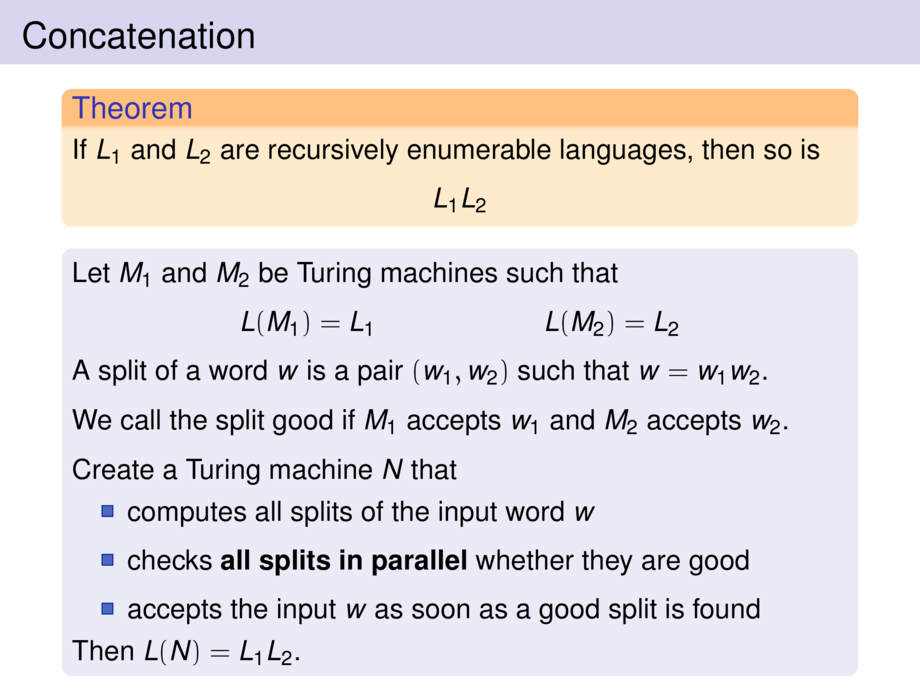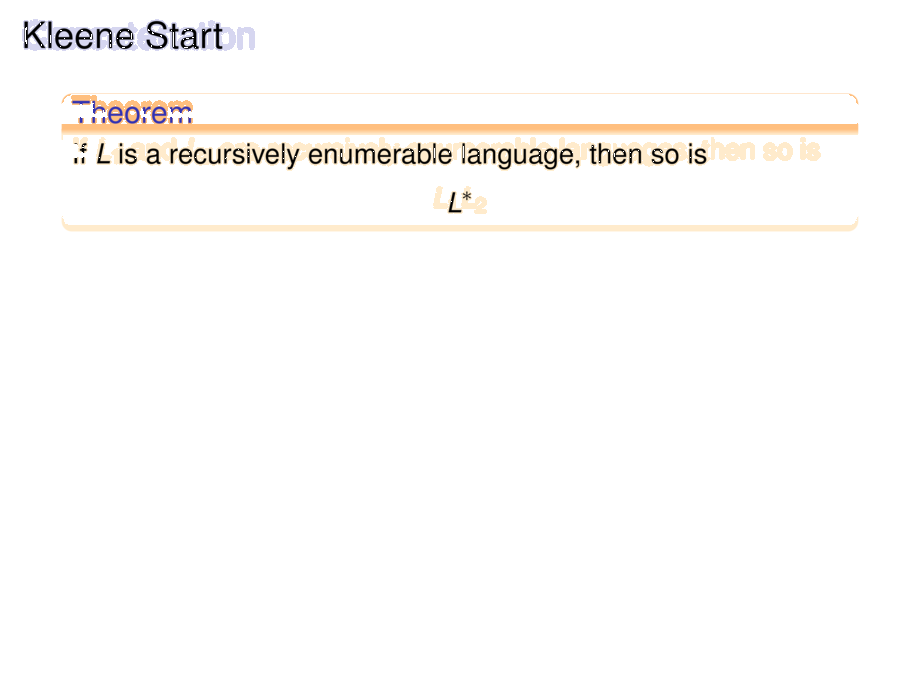



































































































33/55
\begin{frame}{Kleene Start}
\begin{goal}{Theorem}
If $L$ is a recursively enumerable language, then so is
\begin{talign}
L^*
\end{talign}
\end{goal}
\pause
\begin{block}{}
Let $M$ be a Turing machine such that $L(M) = L$.
\pause\medskip
A partitioning of a word $w \ne \lambda$ are non-empty words $(w_1,\ldots,w_n)$ for some $n \le |w|$ such that $w = w_1 w_2 \cdots w_n$.
\pause\medskip
The partitioning is good if $M$ accepts all words $w_1,\ldots,w_n$.
\pause\medskip
Create a Turing machine $N$ that
\begin{itemize}
\item computes all partitionings of the input word $w \ne \lambda$
\item checks \emph{all partitionings in parallel} whether they are good
\item accepts the input $w$ as soon as a good partitioning is found
\end{itemize}
Then $L(N) = L^*$.
\end{block}
\end{frame}

